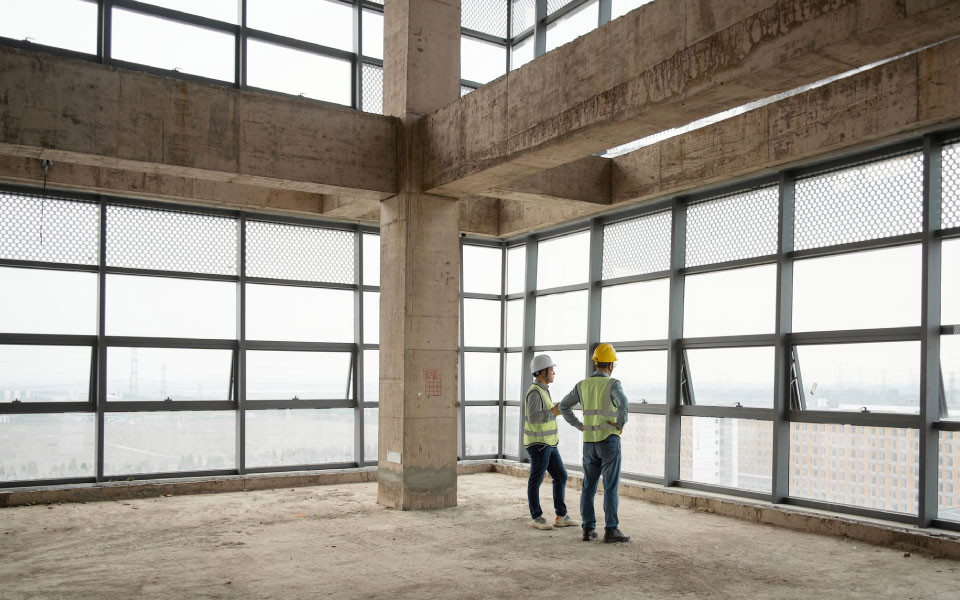The One Big Beautiful Bill Act (OBBBA) was signed into law on July 4, 2025. Since the bill was introduced, it has served as a vehicle for extending tax provisions introduced by the 2017 Tax Cuts and Jobs Act (TCJA), several of which were set to expire after 2025. In addition to making several provisions permanent, OBBBA provides new advantageous provisions that encourage business leaders across many industries to take a fresh look at their tax strategies.
Here are the aspects of the OBBBA expected to have a significant impact on the construction sector.
IRC Section 199A/Qualified Business Income (QBI) Deduction
Many firms in the construction industry are structured as pass-through businesses, which would have been particularly vulnerable to the expiration of the TCJA’s Section199A/QBI deduction, scheduled to sunset after Dec. 31, 2025. The expiration would have amounted to a federal income tax increase of 7.4% in 2026 for those in the maximum tax bracket. Instead, the Section199A/QBI deduction is now made permanent at 20% under the OBBBA.
Estate Tax Exemption
Our most recent survey of construction industry leaders revealed that up to 31% of the industry is operating without a succession plan in place. Family-owned businesses are common in the industry, and the sudden death of an owner can leave survivors with a large estate tax bill on a taxable estate far in excess of the federal lifetime exemption. The TCJA’s inflation-adjusted $10 million estate tax exemption (set at $13.99 million per person for 2025) was expected to be reduced to about $7 million in 2026 if no extension had occurred. This meant that family members inheriting costly construction equipment and other business property could face the difficult choice of selling assets or assuming debt to cover a high estate tax bill. The OBBBA permanently raises the estate tax exemption to $15 million for 2026 (indexed for inflation for future years) per individual.
Bonus Depreciation and Section 179 Expensing
The OBBBA restores the 100% depreciation bonus introduced by the TCJA and makes it permanent. Construction firms will certainly benefit from this change as it incentivizes investment in machinery, vehicles, and other assets, improves cash flow, and may accelerate equipment upgrades that have been on hold. This provision applies to property that is both acquired and placed in service after Jan. 19, 2025.
Additionally, the maximum amount a taxpayer may expense under IRC Section 179 has been increased to $2.5 million, with the phase-out threshold beginning at $4 million. This becomes increasingly important for companies paying taxes in states that do not conform to the OBBBA’s 100% bonus depreciation.
Taxes on Overtime
Under the bill, qualifying hourly employees subject to the overtime rules under the Fair Labor Standards Act will be able to exempt a portion of their earnings by claiming an above-the-line deduction for compensation received over their regular rate of pay for overtime hours. Given the construction industry’s recent struggles attracting and retaining labor, this incentive could prove helpful in obtaining new talent. Since qualifying pay must be separately reported, with guidance to be issued by Treasury, additional recordkeeping requirements may be imposed on employers.
Research & Experimentation
The bill allows for 100% of domestic research and experimentation (R&E) costs paid or incurred after Dec. 31, 2024, to be currently deducted. With novel technologies becoming increasingly common in the construction industry, this could encourage the adoption of new construction technologies and industry-specific software development efforts. The law provides some alternatives for deducting unamortized R&E expenses capitalized in 2022 through 2024, depending on the size of the company (which may lead to refunds from prior years), and it provides options to capitalize the expenditures over not less than 60 months.
Net Business Interest Expense Deduction
The TCJA provided businesses with a limitation on its interest deduction equal to i) business interest income; ii) certain floor-plan interest, and iii) 30% of earnings before interest, taxes, depreciation, and amortization (EBITDA). In 2022, the third limitation was changed so that it was based on earnings before interest and taxes (EBIT). The bill restores the original TCJA limitation, thereby increasing the deduction base to 30% of EBITDA.
Corporate and Individual Tax Rates
The bill makes the TCJA tax rate brackets under Section 1 permanent for individuals. The corporate tax rate of 21% was permanent under the TCJA, and the OBBA made no changes to the rate.
SALT Cap
The state and local taxes (SALT) deduction maximum (cap) is increased to $40,000 in 2025 and increases 1% annually until 2030, when it will revert to $10,000. Those with modified adjusted gross income of $500,000 or more will be subject to phasedowns. At $600,000 of AGI and higher, the cap is reset to $10,000. Notably for the construction industry, the bill does not limit pass-through entity tax workarounds.
Cuts to Green Energy Incentives
The OBBBA’s changes to energy incentives could necessitate significant adjustments in business strategy for construction firms that specialize in climate-conscious practices. The bill eliminates 179D deduction for properties beginning construction after June 30, 2026, as well as similar 45L tax credits for eligible properties acquired after June 30, 2026. This change impacts architects, engineers, and design-build firms that have historically claimed the 179D deduction for designing energy-efficient systems in state and municipal buildings.
The electric vehicle tax credits will expire after Sept. 30, 2025.
100% Deduction for “Qualified Production Property” Costs
This provision allows full and immediate deductions for certain nonresidential real property used in manufacturing or production. Qualified costs include expenses relating to building or acquiring property used for manufacturing, production, or refining with construction that begins after Jan. 19, 2025, and before Jan. 1, 2029, and which is placed in service before Jan. 1, 2031. Contractors may see a significant increase in new bid opportunities. Additionally, contractors who fabricate materials used on construction projects (e.g., sheet metal or steel) may be able to take advantage of this accelerated write-off directly.
Expansion for the Exception from Using Percentage of Completion Method (POCM) for Residential Construction
The OBBBA increases the types of construction projections excluded from the requirement to use the POCM. Under prior law, contractors were required to use the POCM for long-term contracts, except for home construction contracts and certain small contractors. The home construction exception applied to a building with four or fewer dwelling units. Where an exception applies, the contractor is able to use the completed contract method, which can defer profit recognition until the time when construction is substantially complete, or any other acceptable accounting method. The new law expands the home construction exception to residential construction contracts, which includes apartment buildings, condominium complexes, student housing, long-term care facilities, and other properties with multiple residential units. This law change is effective for contracts entered into in tax years beginning on or after the date of enactment of the OBBBA (i.e., for contracts entered into in 2026 for calendar year taxpayers).
Stay Tuned for Further Development
If you have any questions about how your construction business can adapt its tax strategy to accommodate changes introduced by the OBBBA, contact a CBIZ construction professional today.
© Copyright CBIZ, Inc. All rights reserved. Use of the material contained herein without the express written consent of the firms is prohibited by law. This publication is distributed with the understanding that CBIZ is not rendering legal, accounting or other professional advice. The reader is advised to contact a tax professional prior to taking any action based upon this information. CBIZ assumes no liability whatsoever in connection with the use of this information and assumes no obligation to inform the reader of any changes in tax laws or other factors that could affect the information contained herein. Material contained in this publication is informational and promotional in nature and not intended to be specific financial, tax or consulting advice. Readers are advised to seek professional consultation regarding circumstances affecting their organization.
“CBIZ” is the brand name under which CBIZ CPAs P.C. and CBIZ, Inc. and its subsidiaries, including CBIZ Advisors, LLC, provide professional services. CBIZ CPAs P.C. and CBIZ, Inc. (and its subsidiaries) practice as an alternative practice structure in accordance with the AICPA Code of Professional Conduct and applicable law, regulations, and professional standards. CBIZ CPAs P.C. is a licensed independent CPA firm that provides attest services to its clients. CBIZ, Inc. and its subsidiary entities provide tax, advisory, and consulting services to their clients. CBIZ, Inc. and its subsidiary entities are not licensed CPA firms and, therefore, cannot provide attest services.















